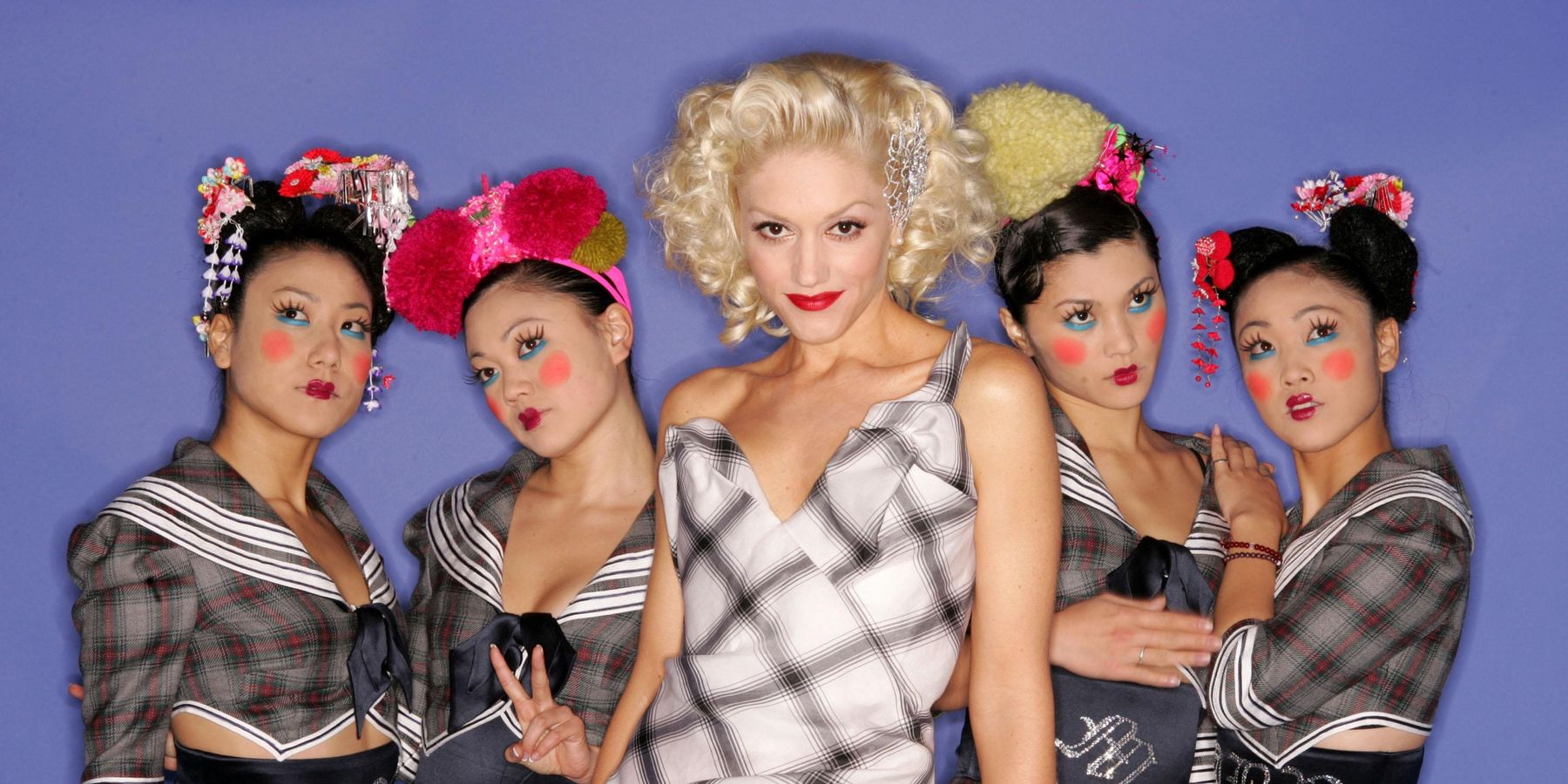Just when you thought we had left behind the trans-racial discourse in 2015, a new interview with Gwen Stefani is triggering some uncomfortable flashbacks. In it, the singer appears to have doubled down on the bizarre claim that she's Japanese, despite being objectively not.
Speaking to Allure about her new vegan cosmetics brand GXVE Beauty, the Italian-Irish American singer revisited her now-controversial late '00s Harajuku Lovers fragrance line and whether or not she had learned any lessons from her earlier venture into the beauty world. Bringing up an anecdote she had previously parroted to other publications, Stefani recalled the 18 years her father spent traveling between California and Japan while working for Yamaha and the colorful stories he would come back with.
"That was my Japanese influence and that was a culture that was so rich with tradition, yet so futuristic [with] so much attention to art and detail and discipline and it was fascinating to me," Stefani said. She would finally get the chance to visit Japan for herself as an adult, leading her to the beguiling realization: "My God, I'm Japanese and I didn't know it." The singer went on to almost immediately double down, insisting, "I am, you know" to Allure's Jesa Marie Calaor (who is a first-generation Filipino American), going on to describe herself as a Japanese culture "super fan."
Related | Have You Met Gwen Stefani?
"If [people are] going to criticize me for being a fan of something beautiful and sharing that, then I just think that doesn't feel right," she further elaborated. "I think it was a beautiful time of creativity… a time of the ping-pong match between Harajuku culture and American culture." She also brought up the classic cultural appreciation versus appropriation conversation, saying, "[It] should be okay to be inspired by other cultures because if we're not allowed then that's dividing people, right?"
As an off-shoot of her Love.Angel.Music.Baby. album cycle which saw the singer travel with four Japanese backup dancers whom she called her "Harajuku Girls," the short-lived fragrance line was plenty problematic in retrospect but is far from the first time we've seen Stefani get called out for cultural appropriation. In the '90s, Stefani was often seen wearing a bindi while dating her No Doubt bandmate Tony Kanal. In 2005, she donned Chola-inspired looks for the music video for "Luxurious." Stefani still hasn't learned her lesson, and she justifiably caught flack for sporting dreadlocks in Sean Paul's "Light My Fire" music video last year.
"The music, the way the girls wore their makeup, the clothes they wore, that was my identity," Stefani tried to explain to Calaor, continuing to assert that she was "a little bit of an Orange County girl, a little bit of a Japanese girl, a little bit of an English girl." She defended her love and identification with these cultures, saying, "Even though I'm an Italian American — Irish or whatever mutt that I am — that's who I became because those were my people, right?"
Stefani has previously tried to address the "Harajuku Girls" controversy in a 2021 PAPER feature, expressing that "If we didn't buy and sell and trade our cultures in, we wouldn't have so much beauty, you know? We learn from each other, we share from each other, we grow from each other. And all these rules are just dividing us more and more."
According to Calaor, Stefani's representatives attempted to convince her that she had misunderstood what the singer meant following their conversation despite having repeated the claim multiple times but declined to elaborate or give any additional context to the statement. While she didn't believe Stefani “was trying to be malicious or hurtful in making these statements," Calaor noted that "words don’t have to be hostile in their intent in order to potentially cause harm," and comes amid a spike in anti-Asian hate which the singer has also "not publicly expressed outrage or made any statements of support."
Photo via Getty/Frank Micelotta/Fox
- Gwen Stefani and Blake Shelton Are Married ›
- Hollyweird: 13-Year-Old Gwen Stefani Met Her Idol, Sting, and Hated Him ›
- Have You Met Gwen Stefani? ›
